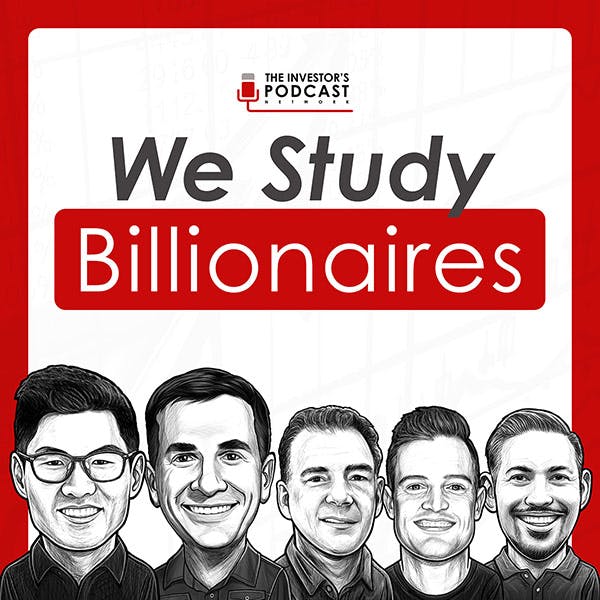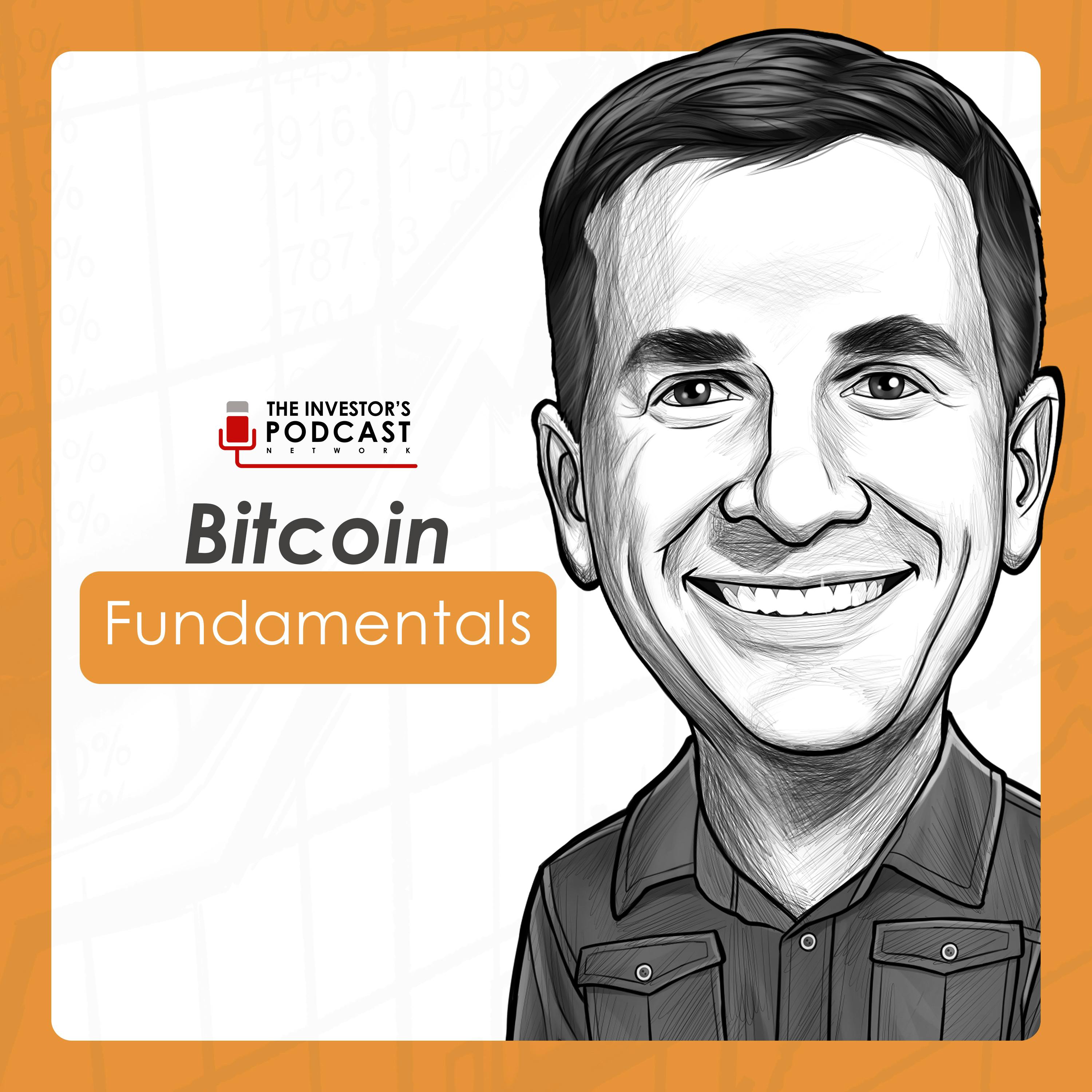
August 4, 2024 • 2hr 3min
RWH048: Betting Billions On Outlier Talent w/ Adam Shapiro
We Study Billionaires - The Investor’s Podcast Network

Key Takeaways
- Adam Shapiro manages about $4 billion in assets for 8 ultra-wealthy families through his firm East Rock Capital. The minimum investment is $100 million.
- East Rock has outperformed major university endowments like Harvard, Yale, and Stanford over the last 15 years by focusing on identifying great fund managers early in their careers.
- Shapiro believes smaller, newer hedge funds and private equity firms tend to outperform larger, more established ones. He looks to invest with talented managers who are launching their own firms after success at larger institutions.
- Key qualities Shapiro looks for in fund managers include grit, resilience, an intrinsic desire to hustle, and the ability to make good decisions under pressure. He conducts extensive reference checks and builds a detailed picture of a manager's character and work history.
- Shapiro is wary of index funds and ETFs, believing they expose investors to too much market risk during downturns. He favors alternative investments like hedge funds and private equity to reduce correlation to public markets.
- For regular investors without access to sophisticated alternatives, Shapiro recommends reducing leverage and recurring expenses to increase resilience. He believes the investment industry needs better solutions to give individuals access to uncorrelated private market investments.
- Shapiro warns about hidden leverage and risks in some large, well-known hedge funds. He cites examples of funds with 5-7x leverage that could be vulnerable in a crisis.
- Key principles for building multi-generational wealth include avoiding over-diversification, focusing on truly uncorrelated investments, and being vigilant about removing "filler" from portfolios.
Introduction
In this episode, William Green interviews Adam Shapiro, managing partner of East Rock Capital, a $4 billion investment firm that manages money for 8 ultra-wealthy families. Shapiro provides insights into how he identifies talented fund managers, builds a resilient portfolio, and thinks about preserving multi-generational wealth. The conversation covers Shapiro's investment philosophy, views on index funds vs alternatives, and lessons learned from working with billionaire families.
Topics Discussed
Shapiro's Background and Early Career (3:34)
Adam Shapiro graduated from Yale in 1995 and initially worked in private equity in Latin America. This experience taught him valuable lessons about the challenges of investing in emerging markets:
- Encountered issues like fraud, corruption, and difficulty operating businesses
- Realized Latin American investments weren't compensating for higher risks through cheaper valuations or faster growth
- Concluded the U.S. has extraordinary advantages as an investment environment
Shapiro states: "If there's one concentrated risk I'm willing to take in my investing, it's being overweight the United States, because the environment is so extraordinary."
Lessons from Goldman Sachs (20:03)
After business school, Shapiro spent 5 years in the Special Situations group at Goldman Sachs from 2002-2007. Key lessons included:
- The power of sourcing investments through networks of people
- Buying distressed/complex assets at deep discounts
- Looking for investments where "all surprises are to the upside"
- Wanting personal exposure to the investments he was making for clients
Shapiro explains: "What I sort of decided for my career was, I want to invest in things where I have the sense it's a privilege to invest in it, it's advantaged, it's favorable, and gosh, I want my own money in it."
East Rock's Investment Approach (36:38)
Shapiro co-founded East Rock Capital in 2006 with the goal of beating the Yale endowment's returns. Key aspects of their approach:
- Focus on identifying great fund managers early in their careers, often as they're launching their own firms
- Look for managers with 10-20 years experience at top firms who are now "betting on themselves"
- Typically invest for 3-5 years as funds are in their early stages
- Conduct extensive reference checks and due diligence on managers' character and work history
- Own 15-20 hedge funds and 60-80 private equity investments across 30-40 sponsors
Shapiro states: "The key to identifying great investors is meeting them as early as you possibly can...and then building this whole picture of who they are and what their work product has been and what their style is and what their advantages are."
Qualities of Great Investors (45:56)
Shapiro looks for several key qualities when evaluating fund managers:
- Intrinsic desire to hustle and find hidden opportunities
- Grit and resilience in overcoming setbacks
- Ability to make good decisions under pressure
- Track record of finding creative ways to source deals
- High integrity and trustworthiness
He emphasizes the importance of extensive reference checks, stating: "The answer is almost always in very extensive referencing where you know people in common and therefore, the views you're getting are from people who are actually motivated to tell you what's really going on."
The Power of Networking (51:53)
Shapiro has built a powerful network that helps him source investment opportunities and talented managers. Key points:
- Views networking as mutually beneficial, not exploitative
- Focuses on giving first and creating value for others
- Sees investing as motivation to be a "learning machine" and connect with diverse people
- Uses network to get detailed insights on potential managers from trusted sources
He explains: "What's wonderful about investing as a career is...all knowledge is relevant and all people are relevant."
Views on Index Funds and ETFs (1:13:21)
Shapiro is wary of index funds and ETFs for several reasons:
- Expose investors to large drawdowns during market crashes (e.g. 55% drop in 2008-2009)
- Most investors can't psychologically handle such volatility and sell at the wrong times
- Difficult to choose the right indices - emerging markets have performed poorly
- Spreading across multiple ETFs reduces returns vs more active strategies
He argues: "There is a very powerful argument for why people should not just kick out alternative investing and think about a publics-only strategy."
Updating the Yale Endowment Model (1:20:05)
Shapiro has updated David Swensen's Yale endowment model in several ways:
- De-emphasizing rigid asset allocation buckets
- Focusing more on market risk and liquidity budgets
- Greater emphasis on smaller, newer managers
- More vigilance about removing "filler" investments from the portfolio
- Creative sourcing of alpha opportunities
He states: "I think there is room, significant room, to move the discipline forward."
Importance of Liquidity (1:21:31)
Shapiro emphasizes the critical importance of maintaining adequate liquidity:
- Rule #1 is "never, ever, ever run out of liquidity"
- Have a clear liquidity budget, but use illiquidity to your advantage
- Balance between having enough liquidity for opportunities and not holding too much cash
He explains: "You budget for the liquidity you need, but not more than that. And you use illiquidity to your advantage."
Reducing Risk for Regular Investors (1:24:20)
For individual investors without access to sophisticated alternatives, Shapiro recommends:
- Reducing leverage and recurring expenses to increase resilience
- Living within your means
- Being wary of commitments made during good times that are hard to maintain in downturns
- Positioning yourself to survive market volatility without being forced to sell
However, he believes the investment industry needs better solutions to give individuals access to uncorrelated private market investments.
Hidden Risks in Large Hedge Funds (1:32:22)
Shapiro warns about hidden leverage and risks in some large, well-known hedge funds:
- Cites examples of funds with 5-7x leverage that could be vulnerable in a crisis
- Argues there is more "manager risk" with opaque strategies using high leverage
- Recommends putting a premium on strategies that can generate good returns without leverage
He cautions: "The history of black boxes using a lot of leverage is not a great one."
Lessons from Ultra-Wealthy Families (1:43:16)
Key insights from working with billionaire families:
- Importance of having purpose and engagement beyond just managing wealth
- Desire to be responsible stewards and create opportunities for future generations
- Need for "no surprises" in investment management
- Challenge of maintaining family vitality and relevance over time
Shapiro explains: "What can suck vitality is this feeling of moving backwards. We were a relevant family in a lot of ways, and now we're moving backwards. And that's the key thing to avoid."
Conclusion
Adam Shapiro provides a fascinating glimpse into the world of ultra-high net worth investing through East Rock Capital. His approach of identifying talented fund managers early, focusing on uncorrelated alternative investments, and maintaining vigilance against portfolio "filler" has allowed East Rock to outperform major university endowments. While some of his strategies are not accessible to average investors, his emphasis on reducing leverage, maintaining adequate liquidity, and positioning for resilience provides valuable lessons for all. Shapiro's insights on networking, assessing investor talent, and balancing risk management with return generation offer a masterclass in sophisticated portfolio management.









